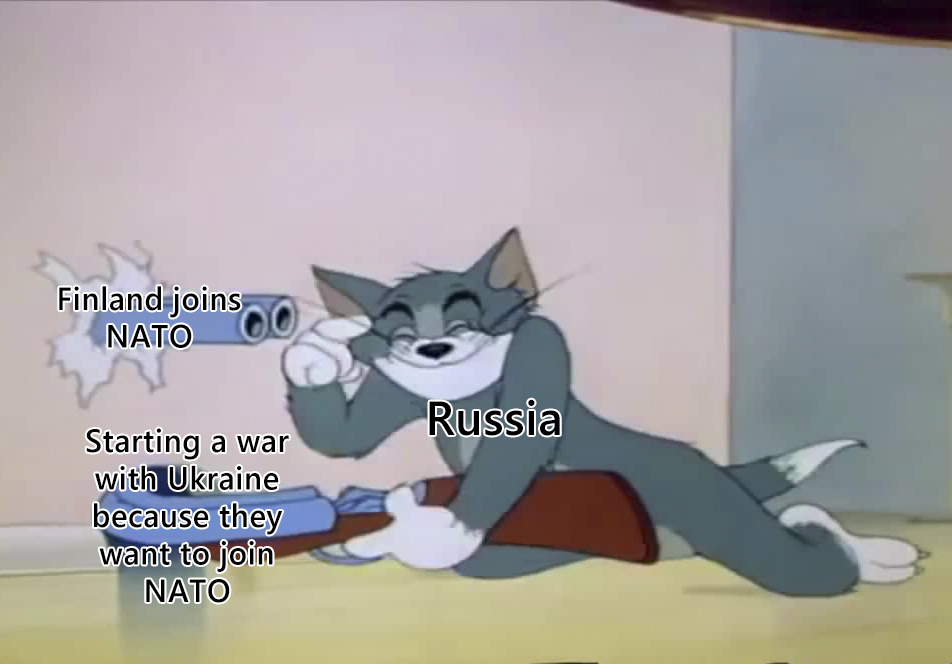With Finland’s official participation in NATO, the alliance now counts 31 countries. When Sweden will also overcome Turkish opposition, NATO will comprise 32 countries. Already now, the enlargement of the alliance is a heavy blow for Russia, which sees a new border with NATO being established in front of it, and loses some of its strategic superiority in the great Arctic North.
For Moscow, this is a sharp loss, now the Russian army is forced into a much more complex and extensive defensive alignment than in the past. Luckily for Putin (and all of us), NATO is a strictly defensive alliance, because otherwise, he would have put his country in dire straits.
This has to be compared with the fact that one of the reasons Putin launched the military operation in Ukraine was precisely to avert a long border with NATO, an alliance that Zelensky’s pro-Western Ukraine was interested in joining.
Instead, the Russian president has now achieved the exact opposite, increasing direct contact between the two sides. This is not the end of the story. This conflict that Putin so strongly wanted, is making the old promise that the US had initially managed to extract from its allies, namely to consider Ukraine and Georgia’s admission to NATO, relevant once again: a proposal that the European states had until last year managed to pass up, but which could now become an urgent and pressing demand.
Russia’s access to the sea, in particular to the Atlantic, is interesting. The Baltic was until a few days ago shared between NATO countries, neutral countries and Russia, and was therefore a rather neutral zone, in which no one had clear supremacy. Now, however, especially if Sweden joins NATO, this sea will be much more controlled by the Alliance, leaving Russia very little room for manoeuvre.
The Russian fleet used to reach the Atlantic from ports in the northern Arctic. But again, the entry of Finland makes these regions much more exposed to NATO’s close surveillance. In other words, Russian naval forces will be much less free than before and much more exposed even at their own bases.
Paradoxically, all this could make the Black Sea naval bases more important for Moscow, especially if Turkey maintains an ambiguous attitude towards the Alliance, and if Russian influence in the Middle East and Africa increases, making the Mediterranean less ‘western’. However, the attack on Ukraine has called into question Russian control of Crimea itself (illegally annexed after the 2014 takeover, with the silence of the world press). As of today, even these bases are therefore far from safe.
However this issue is being analysed, Putin’s decision to invade Ukraine has so far resulted in a storm that damages Russia itself in the first place. Putin can only hope that the Russian people do not notice.
Published on The University Observer on 18th April 2023
Photo credits: @mg_photojournalist
